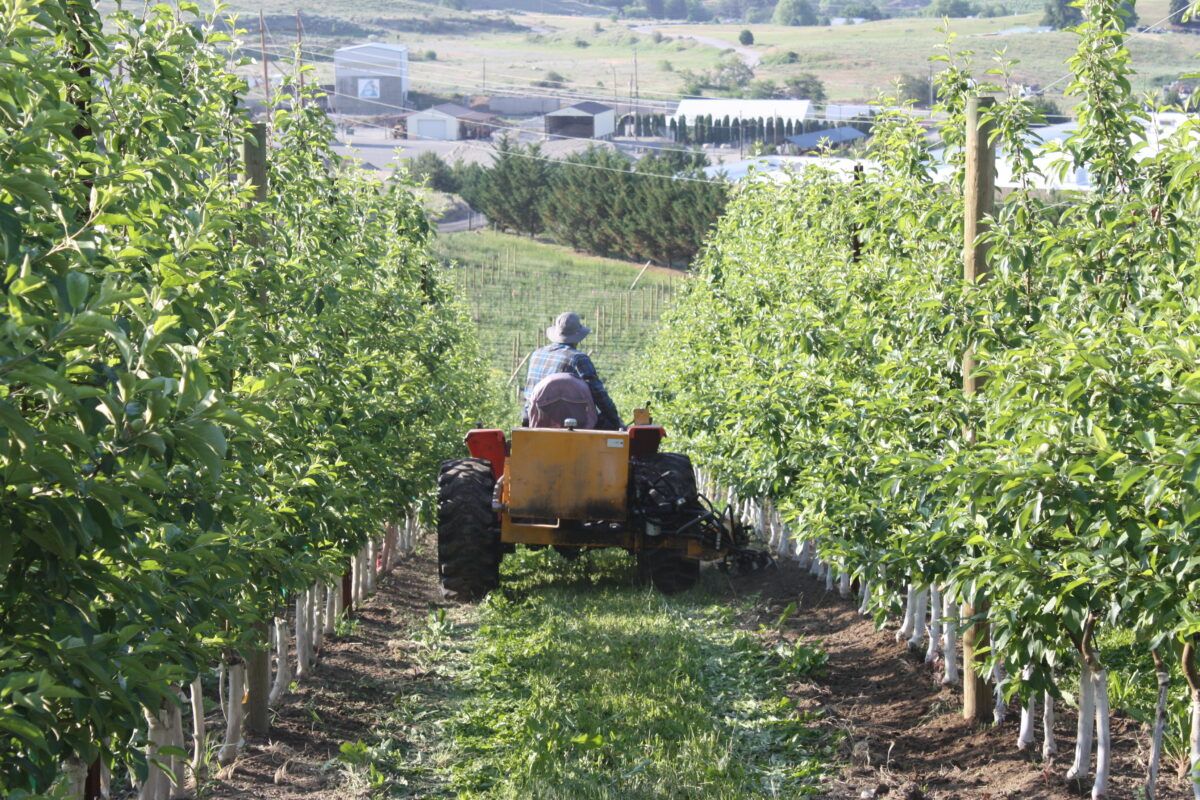Organic Pest Control for Fruit Farms: Exploring Nutrition and Flavor

Building on last week’s discussion of the Consumer Report’s study on pesticide risks in conventional farming, I want to share about organic pest control for fruit farms like ours. We use an approach called Integrated Pest Management (IPM).
IPM offers a sustainable alternative to high-risk pesticides, emphasizing holistic pest control strategies. In this context, I want to share how we address pest control organically at our farm, highlighting the effectiveness and benefits of IPM in organic farming practices. Let’s explore how IPM has evolved and its significance in promoting a healthier, more flavorful, sustainable agricultural approach.
Integrated Pest Management (IPM)
Experimentation with nerve gases during WWII led to the discovery of organic compounds with insecticidal properties, such as carbamates, organophosphates, and organochlorines like DDT. Farmers embraced these chemicals for their ability to increase food production and combat disease-carrying insects, leading to a period of heavy reliance on them. However, this reliance led to a chemical crisis as pests developed resistance, requiring higher doses of chemicals. Rachel Carson’s 1962 book, Silent Spring, highlighted the harmful effects of chemicals like DDT and spurred the environmental movement, resulting in the formation of the EPA in 1970. Integrated Pest Management (IPM) emerged in the 1970s as a response to pesticide overuse, emphasizing the integration of pest biology and cultural practices to control insect pests in crops.
Our Organic IPM

We use the Integrated Pest Management (IPM) approach for organic pest control at Chelan Ranch. IPM provides systematic steps that begin with accurately identifying pest species and regularly monitoring their populations and crop health. Establishing action thresholds determines when intervention is necessary, followed by implementing preventive measures like cultural practices and biological control with natural enemies of pests. We use mechanical and physical controls and use chemical pesticides judiciously as a last resort based on monitoring data and effectiveness assessments. IPM emphasizes record keeping, ongoing education, and continuous improvement to achieve sustainable pest management while minimizing environmental impact and promoting crop health. Our organic IPM approach aligns seamlessly with our annual organic certification requirements mandated by the Washington State Department of Agriculture.
Organic IPM versus Conventional IPM
Organic IPM and conventional IPM share the fundamental principles of integrated pest management (IPM), such as using a combination of techniques to manage pests effectively and sustainably. However, they differ in the specific methods and inputs used:
1. Input Sources:
Organic IPM relies primarily on natural and organic inputs, such as botanical extracts, microbial agents, and beneficial insects, to control pests.
In contrast, conventional IPM may incorporate synthetic pesticides and chemical treatments alongside biological and cultural controls.
2. Pesticide Use:
Organic IPM strictly limits synthetic pesticides, focusing on approved organic pesticides that are less harmful to the environment and human health.
Conventional IPM includes a broader range of synthetic pesticides. The IPM approach discourages their use to reduce environmental impact.
3. Cultural Practices:
Both organic and conventional IPM emphasize cultural practices to manage pest populations, such as crop rotation, sanitation, and habitat manipulation. However, organic IPM emphasizes soil health, biodiversity, and ecosystem resilience as integral parts of pest management.
4. Certification Requirements:
Organic IPM must adhere to organic certification standards set by organizations like the USDA National Organic Program (NOP), which restrict the inputs and practices allowed.
Conventional IPM follows industry best practices and regulatory guidelines but does not have the same organic certification requirements.
5. Long-term Sustainability:
Organic IPM aligns closely with sustainability principles, focusing on building healthy soils, conserving natural resources, and promoting ecological balance.
Conventional IPM aims to reduce pesticide use and environmental impacts but may only sometimes prioritize long-term sustainability to the same extent as organic practices.
While both organic IPM and conventional IPM aim to manage pests effectively while minimizing risks, organic IPM places a stronger emphasis on natural, organic, and sustainable practices, with strict limitations on synthetic inputs and pesticide use.
As a result, our organic farm requires constant vigilance and the best farming practices because we don’t rely on pesticides. If pests escalate, there’s no quick fix to “nuke” them. We have to be preemptive and maintain good soil health and nutrition continuously. Weak plants emit distress signals and have reduced defenses when struggling, which attracts pests. Therefore, we must stay attentive to soil and plant health and actively manage pest populations organically to prevent significant crop damage.
Organic IPM Enhances Nutrition & Flavor

Clean farming practices prioritizing soil health contribute to vibrant organic fruit that is full of flavor and fragrance to satisfy your craving.
- Organic pest control strategies promote healthier fruit crops by reducing pesticide residues, chemical inputs, and environmental contaminants affecting fruit quality and safety.
- Organic farming practices prioritizing soil health, beneficial insects, and natural ecosystem balance enhance fruits’ nutritional content, flavor profile, and sensory attributes.
- Consumers often perceive organic fruits as fresher, tastier, and more wholesome due to their natural cultivation methods, reduced pesticide exposure, and sustainable farming practices.
In our exploration of Organic Pest Control Strategies for Fruit Farms and the significance of Integrated Pest Management (IPM), we’ve uncovered a holistic approach to pest control that aligns with sustainable agriculture. By embracing IPM, we address pest challenges effectively and prioritize environmental health, crop quality, and consumer satisfaction. The emphasis on organic practices promotes healthier fruit crops by reducing chemical residues and enhancing their nutritional value and flavor. This approach resonates with consumers seeking fresher, tastier, and more wholesome produce, making it a cornerstone of our farming philosophy at Chelan Ranch.